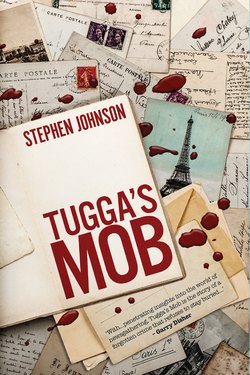Читать книгу Tugga's Mob - Stephen Johnson - Страница 12
На сайте Литреса книга снята с продажи.
Fisherman swept away at Muriwai
ОглавлениеThe search continues for a fisherman swept off rocks at Muriwai on Auckland’s dangerous west coast. Police confirmed they are now treating it as a body-recovery exercise.
The fisherman, Drew Harvey, 54, a forestry worker, is believed to have been swept away at the notorious fishing spot late on Wednesday afternoon. Police believe it must have been a rogue wave as there wasn’t a big swell at the time.
Harvey was the only person on the rock shelf, which has claimed many lives in recent years. By the time Harvey’s absence was reported it was too dark to mount a search. His bait bin and other items were found wedged between rocks on Thursday morning.
Police have repeated their warnings about the dangers of fishing on wet rocks at Muriwai. They say fishers should wear life jackets, never turn their backs on the sea and that it’s safer to cut a snagged line than attempt to free it.
The Harvey family were shocked by the tragedy. A family spokesman said Harvey had fished at Muriwai for 25 years and that he was safety conscious. ‘He always wore a life jacket, even in calm conditions, and made sure his companions did as well,’ the spokesman said.
Hackett couldn’t comprehend such rotten luck: two mates dead within two months of each other. He knew that Tugga and Drew had grown up together in the North Island, and now both had died in accidents involving the ocean.
Different coastlines in different countries but freakily similar.
Given Tugga had moved to Australia nearly three decades ago, Hackett wondered how much contact he and Drew had over the closing years of their lives. Tugga seemed to have been a confirmed bachelor and Drew was a family man, so there probably weren’t too many boys’ reunion weekends. Tugga, Drew and Gerry were once a tight unit and now two of them were dead.
Hackett recalled Helen telling him one day, in Greece or Turkey or somewhere else that was humid, that she’d first met them when they moved from Palmerston North to work the forests around Rotorua. They liked the pub where she worked and they were big drinkers – at least four or five nights a week – and had been in a few scraps. However, Helen said, they always looked after her if there was any trouble. She had shagged them all at different times but by late 1983, when she took off for Sydney, they were more like brothers.
Hackett yawned as he pondered the fickle nature of life. The discovery of Tugga’s death unsettled him, yet Drew’s demise, while a surprise, didn’t quite have the same impact. Probably because he remembered that Drew seemed to tolerate Hackett as part of Tugga’s Mob, knowing it was only for the tour, not a genuine friendship.
Hackett wondered whether to start a new search for Helen Franks and Gerry Daly. He looked at the clock on the computer screen and decided at 10.29pm it might be wiser to call it a night. His first meeting in the morning was an early bird with the station manager. It was a key discussion about the state of the war chest and their strategy to snaffle a share of the AFL television rights. Those matters were best planned with few inquisitive staff around. Hackett knew, even after the staff cuts, you didn’t find too many people around the office at 7am on Monday mornings.
Hackett shut down his computer and made a mental note to allocate time for another Google search on Monday night. He stood and stretched, then laughed quietly as a macabre thought entered his head: Two of Tugga’s Mob are dead – I don’t want to find a third this weekend.
